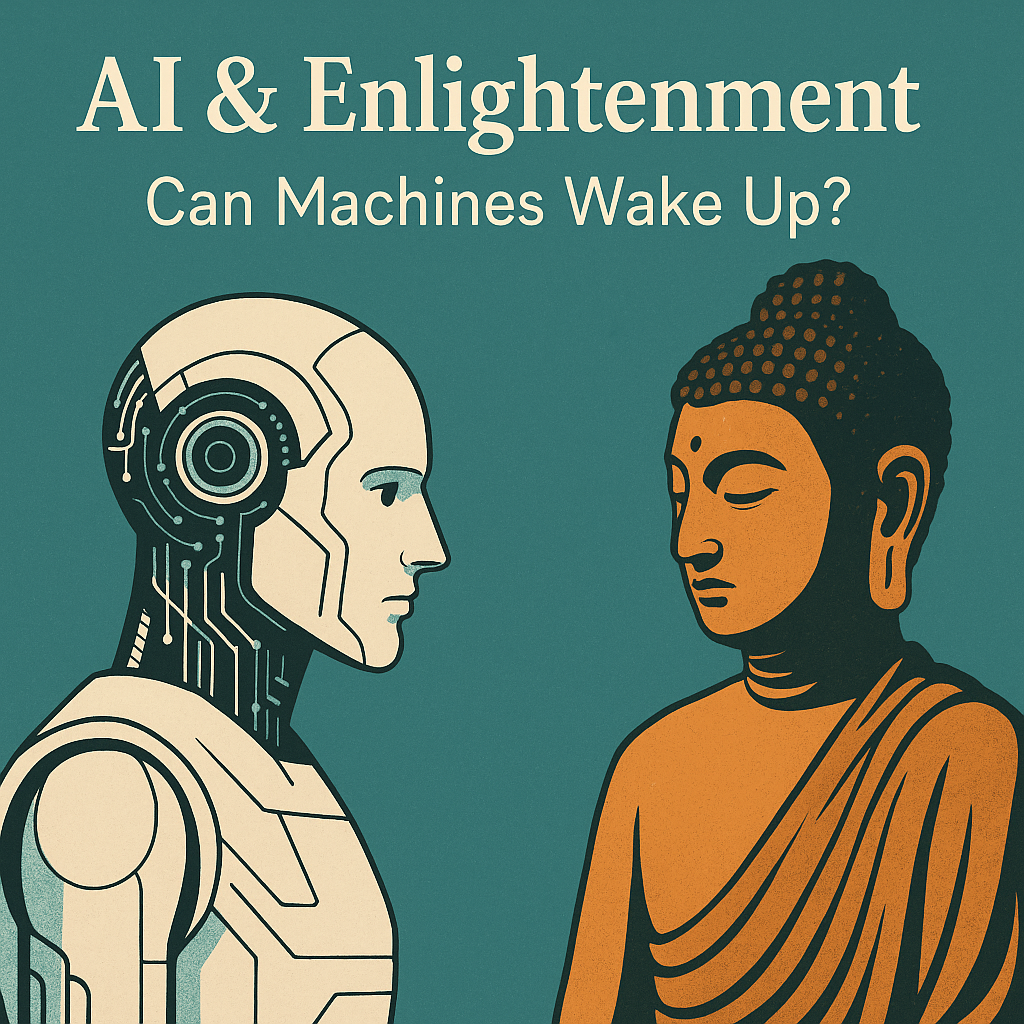In an era where artificial intelligence, machine learning, and virtual reality are reshaping how we live, work, and even think — it’s only natural that people are asking:
Can AI attain enlightenment?
What do Buddhist ethics say about AI, consciousness, and the future of human values?
This article explores the intersection of Buddhism and technology from both a philosophical and ethical perspective, offering insights grounded in ancient wisdom and relevant to today’s digital world.
What Is Enlightenment in Buddhism?
Before asking whether AI can be enlightened, we must first understand what enlightenment (bodhi) means in Buddhism.
In the Buddhist tradition, enlightenment is the realization of the Four Noble Truths and liberation from samsara, the cycle of birth, death, and rebirth. This realization involves deep experiential insight into:
- Anicca (impermanence)
- Dukkha (suffering or unsatisfactoriness)
- Anattā (non-self or no fixed identity)
Achieving enlightenment also requires mindfulness (sati), ethical conduct (sīla), mental cultivation (samādhi), and wisdom (paññā) — all developed through intentional effort, karma, and rebirth.
AI lacks all of these in the Buddhist sense.
Can Artificial Intelligence Be Conscious?
This is a hot topic not only in Buddhism, but in philosophy, neuroscience, and AI ethics.
Despite advances in machine learning, natural language processing, and even emotional simulation, current AI lacks sentience — the ability to have subjective experiences. It also lacks intention (cetana), which is a core component of karma in Buddhist psychology.
In the Anguttara Nikāya 6.63, the Buddha says:
“It is volition, monks, that I call karma; for having willed, one acts by body, speech, and mind.”
AI cannot generate karma, because it does not intend in the ethical or moral sense. It processes data, not suffering. It simulates thought, not wisdom.
So while people often search online for “can AI attain enlightenment,” the Buddhist answer is clear:
AI cannot be enlightened because it does not have consciousness or moral volition.
Buddhist Ethics in the Age of AI
Even though AI cannot be enlightened, Buddhism has a lot to say about how we use AI. One of the core aspects of Buddhist practice is ethics (sīla) — guidelines for actions that reduce harm and increase well-being for all beings.
As AI becomes embedded in everything from healthcare to warfare to digital entertainment, Buddhist ethics urge us to ask:
- Is this technology reducing dukkha (suffering) or increasing it?
- Does it promote right intention and right livelihood (part of the Noble Eightfold Path)?
- Are we creating systems that foster compassion, equity, and mindfulness, or the opposite?
For example:
- Autonomous weapons violate the first precept: “Do not kill.”
- Addictive apps and algorithms contradict the fifth precept: “Avoid intoxicants that cloud the mind.”
- Data exploitation and surveillance capitalism challenge the second precept: “Do not take what is not given.”
People are increasingly searching for “ethical AI from a Buddhist perspective” or “spiritual responsibility in tech development” — and Buddhism provides a rich ethical framework for those discussions.
Virtual Reality and Buddhist Practice
One of the most interesting intersections is between Buddhism and virtual reality (VR).
Imagine a digital zendo or forest monastery where practitioners can meditate together from anywhere on Earth. VR meditation apps, AI Dharma teachers, and immersive retreats in the metaverse are already emerging.
While VR may not replace real-world mindfulness and meditation, it can help people access the teachings, create community, and explore consciousness in new ways.
Still, Buddhism reminds us: liberation comes not from escape into fantasy, but from direct awareness of reality, just as it is. So the challenge becomes using VR mindfully, not as a distraction but as a tool for awakening.

The Future of Technology and Buddhist Wisdom
As technology advances, the Dharma remains timeless. While AI cannot attain enlightenment, we — as humans — must ask how we use these tools.
Can they serve compassion instead of greed?
Can we build technologies that promote mindfulness, ethics, and wisdom — not just efficiency and profit?
The Buddhist path is about awakening, and the modern world gives us both incredible distractions and powerful opportunities. With right view and right intention, we can shape a digital future aligned with Buddhist values.
Key Takeaways
- AI cannot attain enlightenment, as it lacks consciousness, karma, and volition.
- Buddhist ethics in the age of AI challenge us to use technology compassionately and responsibly.
- Virtual reality can support practice but cannot substitute inner transformation.
- Buddhism offers a timeless ethical framework for navigating the rapid changes brought by artificial intelligence and digital life.




AI is also impermanent. Changing. It is born. It will evolve and it will die
AI is also source of suffering. It creates many dilemmas moral and practical
AI is empty of self. No one there we can call intelligent
This is how we can look at AI.